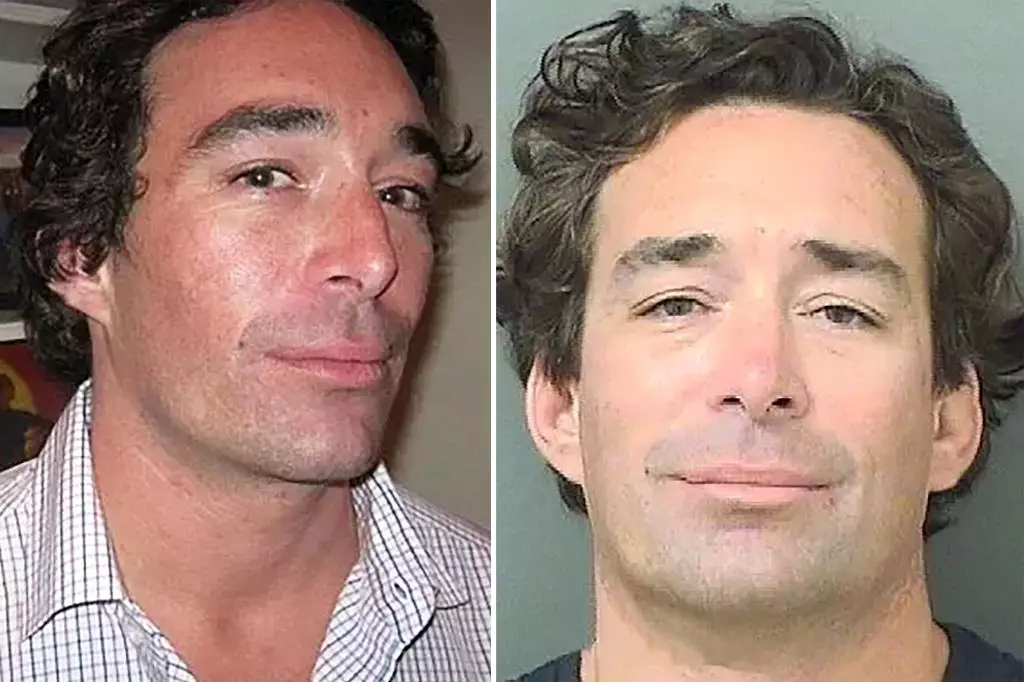Alexander “Nico” Fanjul, scion of the affluent Fanjul family known for their vast sugar empire, found himself embroiled in controversy after pleading guilty to charges related to a domestic violence incident at his Florida residence. This case serves as a sobering reminder that wealth and social status do not shield one from accountability. With a multi-million-dollar stake in Florida Crystals and Fanjul Corp, a conglomerate that spans sugar production and real estate ventures in both the United States and the Dominican Republic, Nico’s legal troubles urge us to reassess the narratives surrounding privilege and the responsibilities that accompany it.
On the surface, it appears that Fanjul managed to secure a mere slap on the wrist—four years of probation and 200 hours of community service. Yet, these consequences raise crucial questions about the effectiveness of legal repercussions for those in the upper echelons of society. This leniency is emblematic of broader systemic issues within the justice system, where the wealthy often navigate their legal troubles with greater ease than the average citizen.
The incident that initiated Fanjul’s legal saga occurred during an evening out at the upscale Flagler Steakhouse. Reports indicate that an altercation began in response to the couple being seated near a homosexual couple, which allegedly triggered Fanjul’s aggressive reaction. This disturbing context hints at underlying issues of intolerance and entitlement. Police arrived to find a woman in distress, with visible injuries, as she recounted the horrors of the evening, expressing that she feared for her life.
Fanjul’s legal representation attempted to mitigate the narrative by indicating that restaurant employees did not witness any escalatory behavior from him regarding the seating arrangements. However, the defense’s contention does little to assuage concerns regarding the troubling nature of the events as described by eyewitness accounts and police reports. It raises questions not only about Fanjul’s character but also about the societal pressures that fuel such explosive reactions.
Following his initial arrest, Fanjul pursued treatment at a luxury rehabilitation facility, showcasing yet another facet of the disparities within the mental health landscape. The fact that he sought treatment at a high-end center like All Points North suggests a commodification of rehabilitation services—accessible only to those who can afford it. His ongoing treatment plan, which includes rigorous monitoring for substance use, underscores the necessity of addressing underlying issues beyond mere legal penalties.
However, this journey toward improvement can be perceived as part of a façade, as evidenced by a subsequent arrest revolving around another incident of domestic violence that surfaced shortly after his initial legal troubles. These probing realities indicate a cyclical pattern that is often too common among individuals who view rehabilitation as a mere obligation rather than a sincere transformation.
The Fanjul family’s history is not unscathed by allegations of domestic violence. Nico’s past relationships, particularly with socialite Tinsley Mortimer, are riddled with accusations that paint a troubling image of his conduct in intimate relationships. From severe incidents requiring hospitalization to unreported physical violence, these damning chronicles create a narrative that indicates a deeply ingrained pattern rather than isolated incidents.
This line of behavior draws attention to the complexities surrounding how affluent individuals can evade the deeper repercussions of their actions, often leading to questions about societal complacency in addressing domestic violence. Each incident represents not merely personal horror stories but a broader societal call to action regarding mental health awareness and the dire need for equitable legal frameworks.
As Nico Fanjul embarks on a path structured by probation and community service, the larger questions surrounding privilege, violence, and accountability linger. While his family’s wealth has afforded him luxuries that obscured the full impact of his actions, it is paramount that society holds individuals accountable, regardless of their economic status.
This case acts as a focal point for necessary discussions regarding the intersection of privilege and justice, ultimately challenging us to dismantle the narratives that allow domestic violence and harmful behaviors to persist. Change begins with awareness, and it is essential that we do not allow status to dictate the severity of consequences when it comes to fundamental human rights and dignity.

Leave a Reply